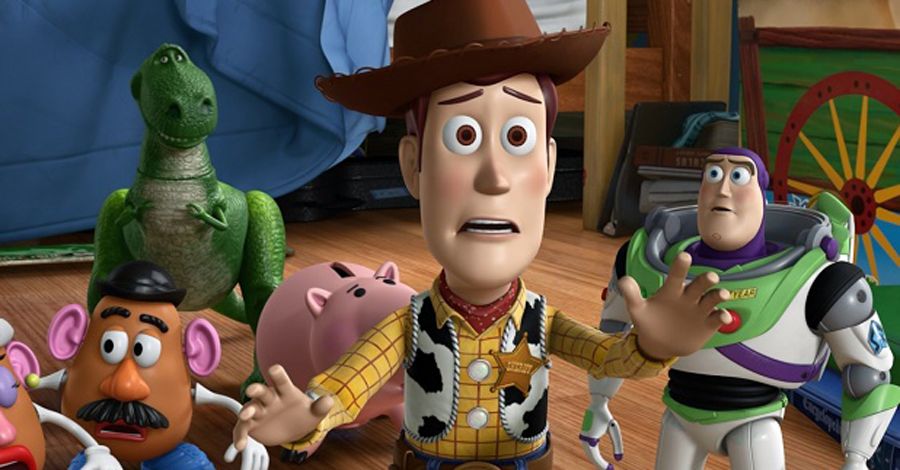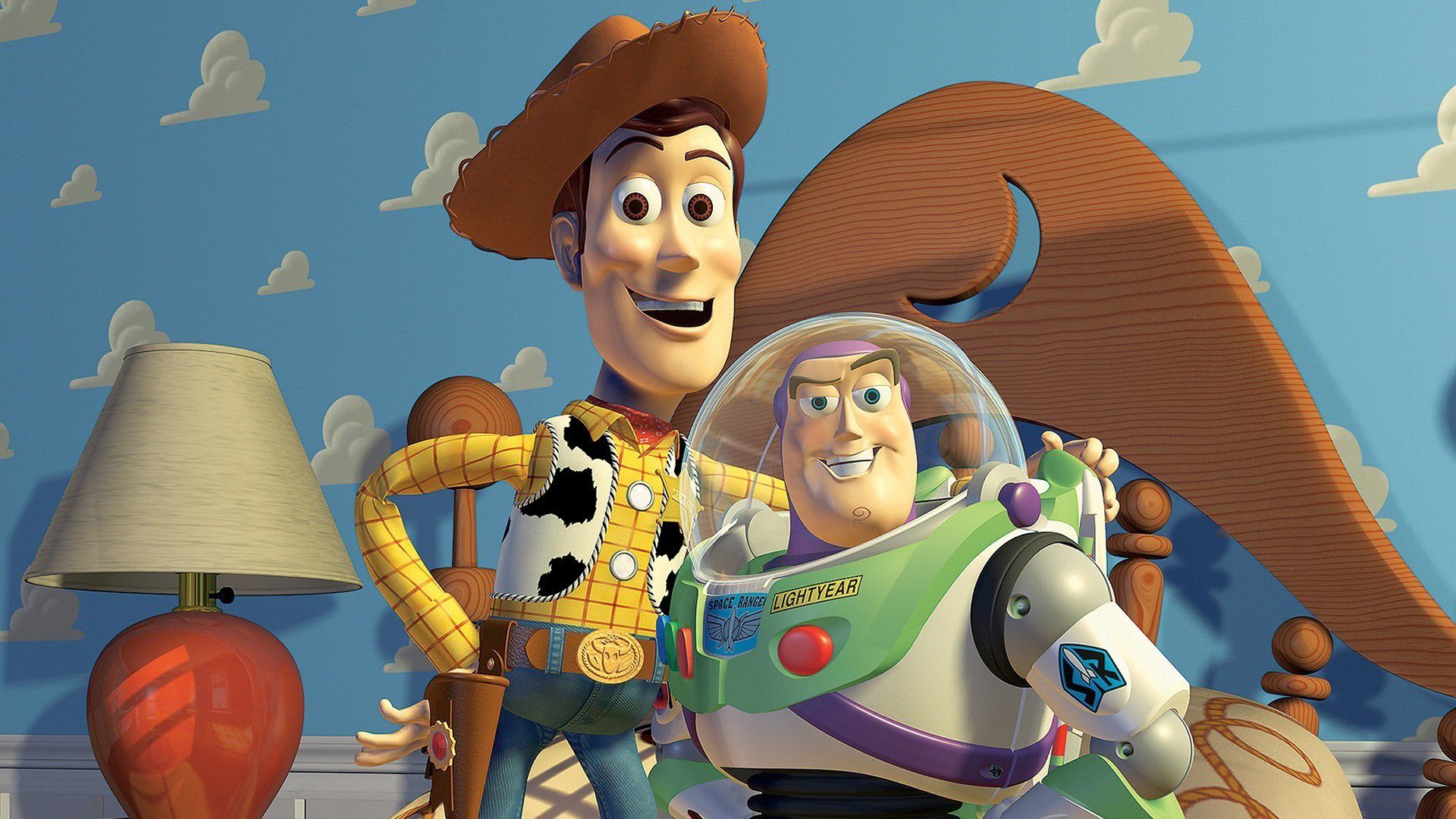MOVIE URBAN LEGEND: "Toy Story" was nearly canceled because the original script was considered too dark.
In an earlier Movie Legends Revealed, I discussed how Pixar accidentally deleted 90 percent of its work on "Toy Story 2" nine months into the project. The studio managed to recover from that near disaster, but what’s interesting is that there almost came a time when there wouldn’t have even been a "Toy Story 2," because the original film came within two weeks of being canceled by Disney.
The 1995 animated feature "Toy Story" is about what goes on with your toys when you're not playing with them. In this case, a boy named Andy has a variety of toys that have live of their own when he’s not around. Although his favorite toy is the cowboy doll Woody, at the beginning of the film, Andy gets a futuristic spaceman named Buzz Lightyear. When it appears as though Buzz might be supplanting Woody as Andy's favorite, the cowboy, naturally enough, has a problem with that. When Andy is allowed justone toy on a trip to the local pizza place, Woody tries to hide Buzz but instead accidentally knocks him out of the window. Woody eventually makes it up to Buzz, and the two find themselves captured by Andy's cruel neighbor Sid. Can Woody and Buzz escape before Sid blows them up and get back to Andy before he and his family move?
However, that wasn’t the original plot of "Toy Story."
The idea of having an outside animation studio like Pixar (it wasn’t purchased by Disney until 2006) was considered quite risky at the time, and Disney chairman Jeffrey Katzenberg had to fight hard for the project to go forward. Pixar's technically advanced way of making animated films was enough of a hook that Katzenberg really wanted the studio to be at Disney (especially after Disney couldn't convince Pixar to simply sell its methods). As a result, however, Katzenberg was continually attempting to mold the film into what he thought would work best. He once conceded to Pixar’s John Lasseter that, yes, he was a tyrant, but he was right most of the time, so he should be listened to. One of the areas where Katzenberg had the most influence was on "Toy Story’s" script; he wanted the film to have a darker, more cynical edge, aiming for it to appeal to adults as much as to kids.
That was manifested most clearly in Woody. In some of the early treatments, he was flat out the villain of the movie. Even after they moved more toward the buddy-comedy approach (something Katzenberg himself pushed for), Woody was still a bit rough around the edges. Tom Hanks, who had been cast as Woody, remarked that the character just seemed like a jerk. The matter came to a head on Nov. 19, 1993, when Lasseter and crew brought the first half of the film to Disney's offices in Burbank. This incident was later referred to as "Black Friday," as Disney hated the film, so much so that Peter Schneider, head of Walt Disney Animation (who was never a fan of farming out a movie to an outside studio), wanted it canceled and all the Pixar animators fired. Katzenberg, too, was shocked by how bad it was, but soon realized the simple fact of the matter was that the film was no longer the movie Pixar wanted to make, but rather the one the studio was sort of forced to make.
This was shown especially in a clip where we see Woody intentionally throw Buzz out of the window:
The movie was just far too dark. Lasseter explained that wasn't the style of film they wanted, and they were given two weeks to turn things around. It looked bleak, with Schneider none too pleased with the situation, but eventually the reworked script addressed all of Disney's issues, and the film was back on track to being a lighthearted comedy, and Woody was a nice toy again. (At the same time, they came up with the hook that Buzz Lightyear doesn't realize he is a toy.)
The finished film was a smash success, launching Pixar on its way to becoming perhaps the preeminent animation studio in the business, with "Toy Story" grossing more than $300 million and getting nominated for three Academy Awards (Lasseter received a special Oscar for the film).
The legend is...
STATUS: True
Feel free (heck, I implore you!) to write in with your suggestions for future installments! My e-mail address is bcronin@legendsrevealed.com.
Be sure to check out my Entertainment Urban Legends Revealed for more urban legends about the worlds of TV, Movies and Music! Click here for more Disney-related legends!


